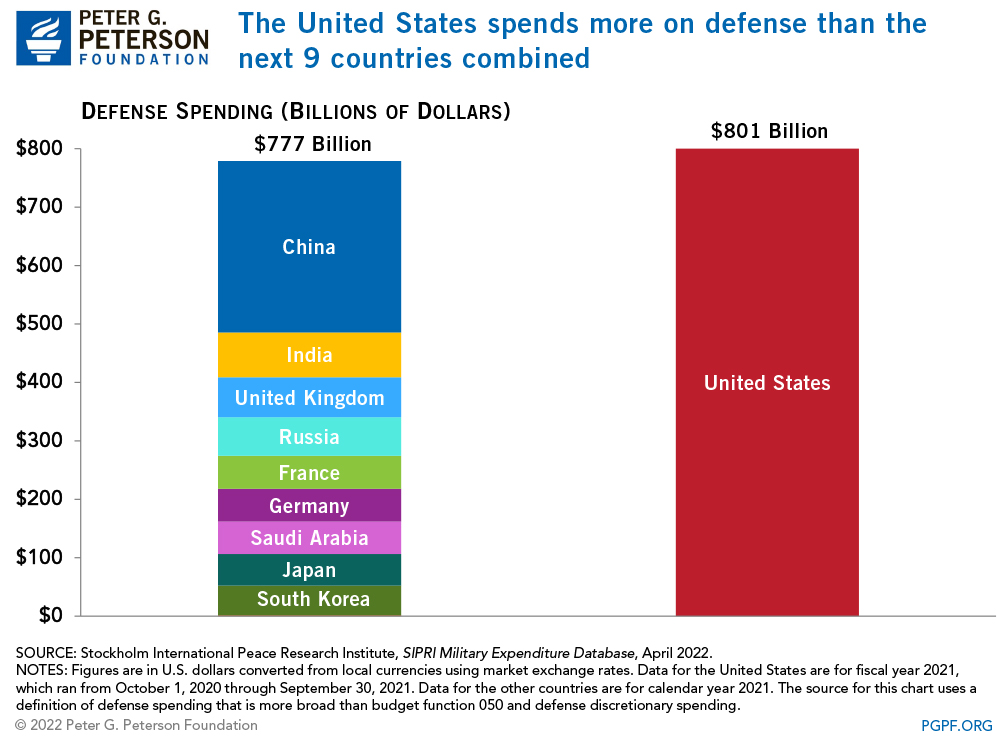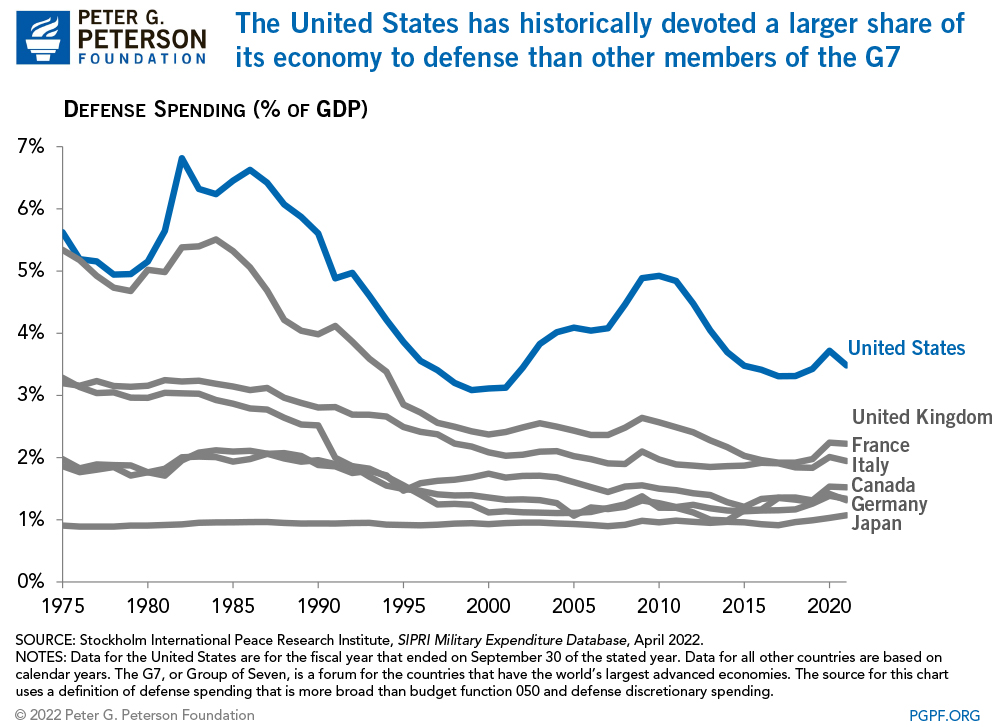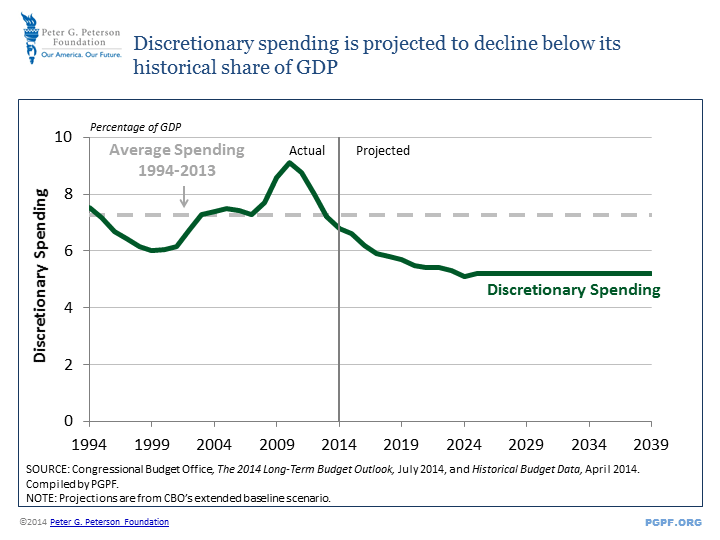The US Spends More on the Military than the Next 11 Countries Combined
The Peter D. Peterson Foundation
(July 19, 2021) — Defense spending by the United States increased by $44 billion from 2019 to 2020, according to recently released figures from the Stockholm International Peace Research Institute (SIPRI).
That increase outstripped growth in spending from other countries, and as a result, the United States now spends more on defense than the next 11 countries combined (up from outspending the next 10 countries combined in 2019).

SIPRI’s definition of defense spending is broader than the definitions that are most frequently used in fiscal policy discussions in the United States, and according to their calculations, the United States spent $778 billion on national defense in 2020. SIPRI includes discretionary and mandatory outlays by the Department of Defense, Department of Energy, Department of State, and the National Intelligence Program.
By contrast, the typical budget category of defense discretionary spending ($714 billion in 2020) excludes outlays by the Department of State and all mandatory spending. Nonetheless, the SIPRI comparison provides useful insights on the sheer scale of U.S. defense spending relative to other nations.
Defense Spending Covers a Wide Range of Activities

Although the United States spends more on defense than any other country, the Congressional Budget Office projects that defense spending as a share of gross domestic product (GDP) will decline over the next 10 years — from 3.3 percent of GDP in 2021 to 2.7 percent in 2031. That is considerably lower than the 50-year average spending on defense of 4.4 percent of GDP.
Defense Spending Projected to Stay Below Historical Share of GDP

Defense spending accounts for a sizable portion of the federal budget and the United States vastly outspends other nations. In determining the appropriate level of such spending in the future, it will be important to evaluate whether it is being used effectively and how it fits in with other national priorities.